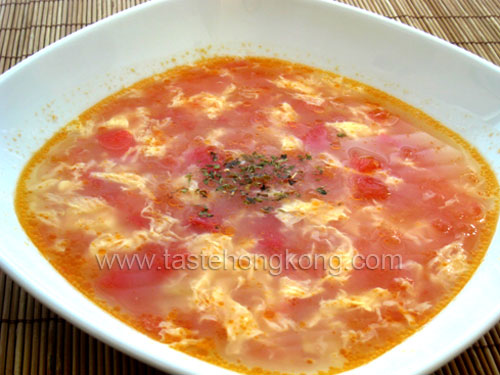Oh, where to begin with that one. In a perfect world, I could send her to her dean and there she would be reschooled on the school motto, "Diversity, Opportunity, Respect." But who was I kidding? The fact that she did not even bother to pretend to text surreptitiously says everything you need to know about how things work in my school.
I contemplated pointing out to her that General Tso's chicken is an American invention, just like fortune cookies. I considered asking her if she makes requests of all her teachers to serve her favorite dishes in class after they dare ask her to put her phone away. And if she does, what specific requests has she made? Scallion pancakes? Lasagna? Mac and cheese? Irish soda bread, fried chicken, barbecue?
In the end, I opted to keep teaching. At the end of class, I told her in front of her classmates that I'm vegetarian. So no, I won't be bringing in General Tso's chicken, which, by the way, is not real Chinese food, so if you're interested in that, you should order some from the Panda Express at the mall.
That was the best I could muster.
Last week, in the aftermath of the piece-of-crap Calvin Trillin poem on Chinese food called "Have They Run Out of Provinces Yet?" published in the April 4, 2016 edition of The New Yorker, the Asian American community (writers, bloggers, celebrities, and allies) blew up Twitter with cogent responses to Trillin's lazy, reductive, poorly-written piece of doggerel.
Trillin's poem begins by positing the "they" against the "we."
Have they run out of provinces yet?
If they haven’t, we’ve reason to fret.
"They" are the faceless, nameless entity that threaten to disturb the comfort of the "we." "We" are the fretters who can't seem to keep track of exotic, regional cuisines of China that have multiplied like wild mushrooms on the foodie scene in America.
Then comes a parade of provinces, starting with the familiar "Cantonese" to the "food from Szechuan," to "Shanghainese... dumplings whose insides were soup" to "Hunan" to "Fukien" to "Uigher" to "Xian"--and it's all oh-so-confusing to keep track of!
By the second stanza, Trillin's lame rhyming couplets take a turn from a whiny, irritating voice to one that's far more ominous as the tone shifts from why are there so many kinds of Chinese food to keep track of? to damn that country and all its confusing provinces for creating "tension" and "increasing our fears." Whoa. There it is. There it is: yellow peril, loud and clear.
Then comes a parade of provinces, starting with the familiar "Cantonese" to the "food from Szechuan," to "Shanghainese... dumplings whose insides were soup" to "Hunan" to "Fukien" to "Uigher" to "Xian"--and it's all oh-so-confusing to keep track of!
By the second stanza, Trillin's lame rhyming couplets take a turn from a whiny, irritating voice to one that's far more ominous as the tone shifts from why are there so many kinds of Chinese food to keep track of? to damn that country and all its confusing provinces for creating "tension" and "increasing our fears." Whoa. There it is. There it is: yellow peril, loud and clear.
Does it take a genius to predict that Trillin's words would strike an Asian American ear as reductive, racist, and xenophobic? Apparently so, and even the geniuses at The New Yorker failed to see the problem with this poem.
As a respected food critic and humorist who is versed in the subtleties of regional Chinese cuisines, Calvin Trillin does not need a history lesson on the Chinese Exclusion Act of 1882. So, how then did Trillin and the New Yorker become so myopic and tone deaf? How did they fail to see the one hundred and one ways in which this poem was not going to be one bit funny to many of its readers? Oh right. The white gaze. Again.
But something really awesome happened in response to Trillin and The New Yorker's blunder. Asian Americans talked back! Bet they weren't expecting that from the so-called model minority whose immigrant parents told us not to draw attention to ourselves.
- Celeste Ng, author of Everything I Never Told You, storified her tweets on "Why I'm Talking About That Poem" here.
- Timothy Yu, author, poet, and professor, writes about the "long tradition of white writers praising Chinese culture while ignoring Chinese people" in his article published in the New Republic entitled "White Poets Want Chinese Culture Without Chinese People." Professor Yu also parodies Trillin's poem in "Have They Run Out of White Poem's Yet."
- Karissa Chen, joined by Beth Nguyen and Celeste Ng, throw lines in "A Rap Battle with the New Yorker's Calvin Trillin."
- Phil Yu wonders if "This guy's actually sad that there is too much Chinese food" on his Angry Asian Man blog.
And, as usual, when POC talk back, the people who are called on their bigotry resort to these familiar refrains:
- How is this racist?
- You missed the joke.
- You misunderstood his point.
- He has friends who are [insert name of oppressed group].
Amidst outcry from the Asian American community, Trillin explained to the Guardian that his poem was "simply a way of making fun of food-obsessed bourgeoisie.” Among the people who rushed to defend Trillin was author Joyce Carol Oates, who tweeted that he was "Misunderstood / for writing funnily of food." Samuel Cohen notes, "He's being ironic. He's been a food writer and poet of doggerel verse for a million years and I've seen him riding his bike around Chinatown, where he loves to eat. He is not actually complaining about the variety of regional Chinese cuisines and he is not actually nostalgic for the days of chow mein. He is making fun of white people."
As so many people have already pointed out: good satire doesn't require a disclaimer. So let me try to wrap my head around this one. Trillin was making fun of white people by commodifying a culinary history he claims to love? #TrillinFAIL #NewYorkerFAIL







